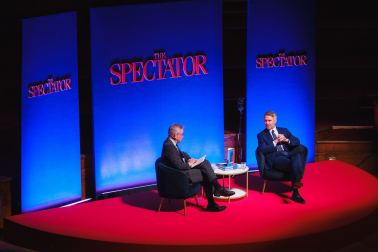Here is what Alan Johnson, the Education Secretary, told a Fabian Society and Progress debate for the Labour deputy leadership contenders on 16 May: ‘For our party audience, if you said, yes, we will ban those grammar schools where they exist at the moment, it would get a round of applause. The reason why the [Labour] National Policy Forum who discussed this at length have not gone to that step is quite simple: we would lose Gloucester, we would lose Slough. The people who are telling us that are MPs in those areas who fiercely oppose selective education, so this is the real cardinal point, if we want to carry out our policies, we have to be in power, and we have to be aware in deciding our policies what that will do for our chances of being elected to government. Realpolitik.’
So much for the Tory mantra of the past week and a half that grammar schools are not popular. Mr Johnson is prepared, disgracefully, to impose an arbitrary cap of 400 on city academies. But he and his comrades are not willing to close the 164 remaining grammar schools because they fear, quite correctly, the local consequences in a general election that is certain to be hard-fought.
The row within and beyond the Conservative party over grammar schools has been framed in precisely the wrong terms. ‘As any fule kno’, to quote the great Nigel Molesworth, nobody sensible is proposing a centrally imposed return to the 11-plus or a rigid tripartite schools system of the sort established by Butler’s 1944 Education Act. The objective of a modern education system should be radical decentralisation, diversity of provision and the devolution of power to schools.
This much Mr Cameron and David Willetts, the shadow education secretary, claim to understand: witness their enthusiasm for US charter schools and the expansion of Mr Blair’s city academy scheme towards which the Labour movement has displayed powerful hostility (hence Mr Johnson’s proposed cap).







Comments
Join the debate for just £1 a month
Be part of the conversation with other Spectator readers by getting your first three months for £3.
UNLOCK ACCESS Just £1 a monthAlready a subscriber? Log in